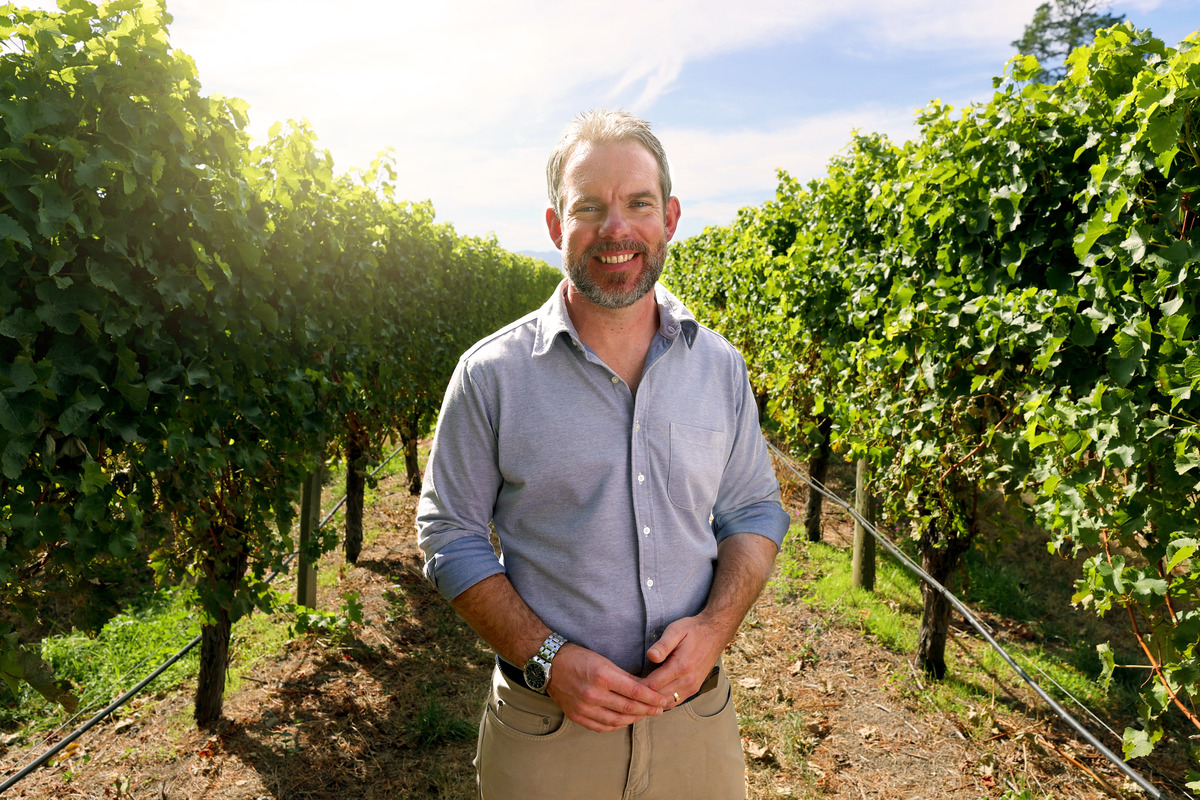Recognising the importance of sustainability for the wine industry’s longevity, Giesen has introduced innovative practices across its vineyards and wine production facilities, especially focusing on reducing water use and repurposing waste products.
National Liquor News sat down with Duncan Shouler, Giesen’s Chief Winemaker, to discuss why the company is committed to sustainable winemaking.
“We have 40 years of winemaking history at Giesen and we’ve made our wine sustainable since day dot. It’s about looking at the next generation, and the generation after that. We’ve got to be very conscious of our impact on the environment.
“We also have to be very conscious of the consumer and what they want. They want to see sustainability. They want to know that we’re making a product that is environmentally responsible,” he said.
Climate change is a major concern for the winemaking industry, with the effects already noticeable in the vineyard. For Shouler, he is finding that Marlborough vintages need to be picked up to two weeks earlier than in his first vintage in 2009, due to the rising temperature.
As the temperature rises, Shouler is concerned about water access.
“Our access to water is probably going to reduce. So sustainability plays a really large part in ensuring that we’re set up for the future and have longevity as a business,” he said.
In the near future, Giesen hopes to be able to process its own wastewater into potable drinking water. The local council currently offers a trade waste processing service, but this constitutes an added cost for Giesen, as well as a significant burden on the local council due to the number of wineries in the area.
“Last year we did a pilot trial where we took our wastewater and, using a trial setup on site, we fully reprocessed it all the way back to drinking water.
“Our intention is to get to a stage where the whole winery has that setup, where every drop of water that is used and goes down the drain doesn’t go to the trade waste. That goes into our processing plant, and is fully recycled back into potable drinking water, and that drinking water becomes the water supply for the site,” Shouler said.
Another water- and energy-saving measure is Giesen’s use of decanting technology. This is a method of removing solid matter from crushed grapes, wherein the juice is spun quickly in a sideways centrifuge, separating the solid and liquid components.
“You cut out the whole process of cold settling or flotation and you cut out the whole process of lees filtration, so you remove two very large energy-consuming and water-consuming processes.
“It also means you have great speed through the winery. Within only a few hours of the fruit arriving, it’s in a tank fermenting. Our water usage and our power usage are significantly reduced, and it’s also significantly reducing our losses. Because you’re cutting down on the number of steps, you lose less juice. You’re getting more extraction and you’re getting more product from the vineyard that you harvest,” Shouler said.
Increasingly, Giesen is becoming known for its low- and no-alcohol wines. Giesen removes alcohol from its wine using spinning cone technology, which is an added energy cost on top of the normal energy consumption involved in wine. To mitigate this energy usage, Giesen is looking for ways to reuse the removed alcohol.
“At the moment, we do a few things with that alcohol. We actually make a gin out of it. We’re also developing a system where we can take that alcohol and, on site, we reprocess it and turn it into fuel. We concentrate it up to a much higher percentage of alcohol and that fuel is then used to drive the boiler that runs the spinning cones.
“We will also look at other initiatives like whether we can use it to fuel some of our vehicle fleets. That’s a big project that might take us some time, but we’re very much entrenched in it,” Shouler said.
Like Australian wines, consumers can be sure of the sustainable credentials of the New Zealand wines they are purchasing by looking for BioGro certification marks for organic products and Sustainable Winegrowing New Zealand (SWNZ) certification marks for sustainable wines. Ninety-eight per cent of New Zealand wineries are SWNZ certified, which Shouler sees as a positive sign for the broader New Zealand wine industry.
“We’re seeing more regenerative farming in New Zealand, which is great, with responsible use of the land and responsible vineyard practices to ensure that we have good longevity of our products,” Shouler said.
“SWNZ is a great certification, but we need to continue to go above and beyond that certification, to show that what we are doing is more than just the basic certification process. Things like recycling wastewater are not required to get sustainable certification, but they’re our way of showing that we are certified, and we go above and beyond.”

